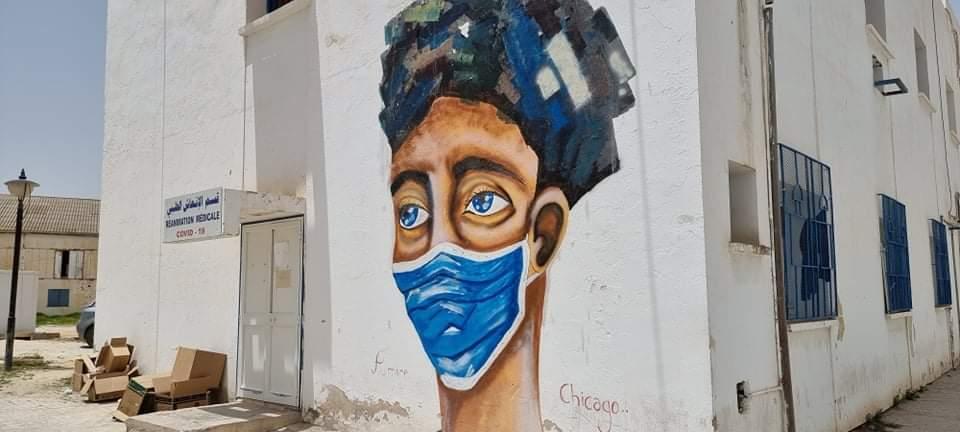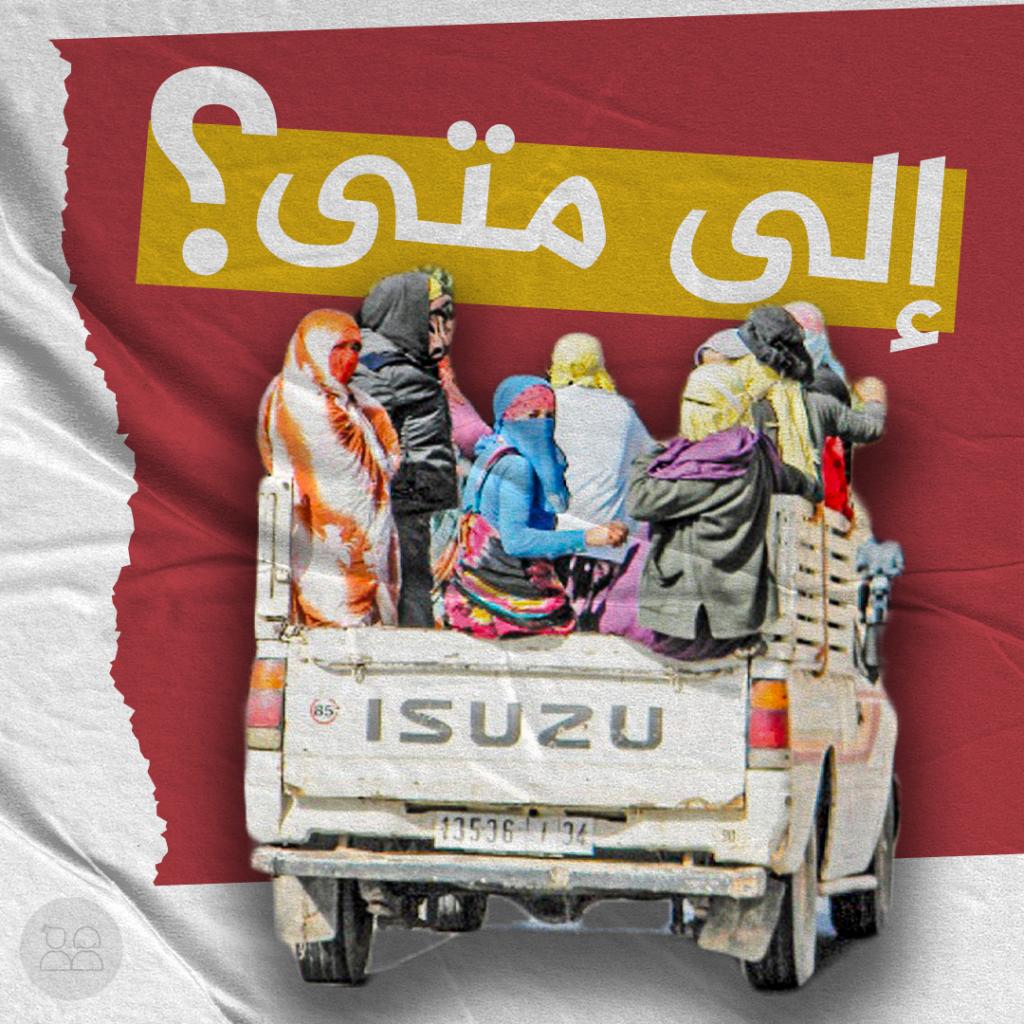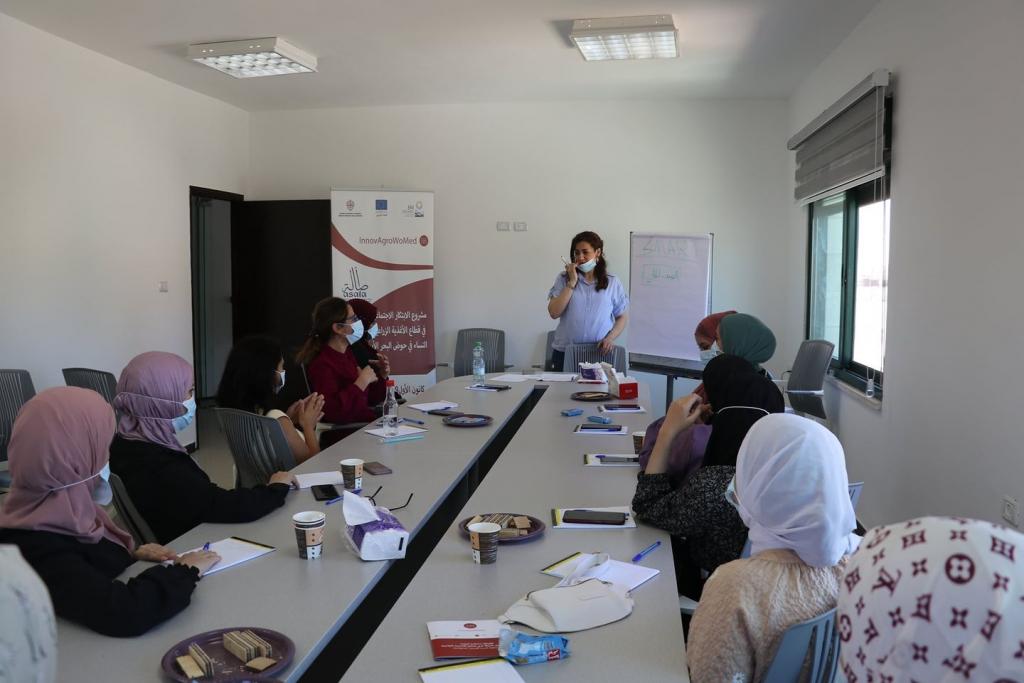[InnovAgroWoMed] Rural women during and after COVID-19: Heroines despite everything!

"There is compelling evidence that women's active participation improves the effectiveness of humanitarian assistance, the credibility and quality of peacekeeping, the pace of economic recovery in the aftermath of a crisis, and the sustainability of peace agreements”
Ban Ki-Moon - World Humanitarian Summit
They were as always and against all odds, on all fronts, and they still are! They were relentless and assured in their white coats, running through the corridors of life and death in virus-stricken hospitals; in military uniforms ensuring security and vaccinating the population in the most inaccessible locations; behind screens and on the podiums of poorly protected classrooms, trying with all the modest means at their disposal to save the school year... They climbed the steps of the courts every day, which were for months epicenters as risky as hospital morgues, defending abused women behind locked doors in the middle of the lockdown...
They reported on hundreds of demonstrations claiming dignity, work, and vaccines, scenes from the daily life of hospitals, countless conferences of the Ministry of Health, holding their microphones to potentially contaminated mouths, often marginalized and always eager to get basic rights and to survive... They were standing behind the stoves and in front of empty refrigerators, feeding children who were suddenly out of school and confined, and husbands who lacked visibility but also income, and who in turn found themselves suspended from work.
They were early in the morning on the back of the crazy death truck, taking the road to the farms and fields of discrimination, covering their dull and pensive faces by the corner of their old scarves in the absence of anti-covid masks. They took these same roads, determined to survive, to revive the land, and to feed families that were shivering from cold, hunger, symptoms of the virus or fear of bad news, contamination, dismissal, or COVID-19 deaths...

These brave Tunisian women were there, on their feet, determined not to faint and give up the fight against a ferocious pandemic that has devoured lives, jobs, dreams and neurons.
These women, in rural Tunisian areas, were according to official reports and those of civil society organizations, the most affected by the pandemic of COVID-19. The opposite would have surprised us. Marginalization, poverty, and discrimination have always been associated to women's work in this sector in rural areas.
An AFO report states that "vulnerability towards shocks and crises is closely linked to gender inequality: disasters reinforce, perpetuate and accentuate this inequality. Furthermore, women's contributions to resilience-building activities and peacebuilding processes are often overlooked, and their leadership potential is not yet recognized”.
The same report also states that "Prolonged or recurrent crises affect the food and nutritional security of a very large number of people. Natural and man-made disasters limit economic opportunities, destroy household assets and change the social structure, affecting the role of men and women, both within the family and as economic actors. This often results in an increased workload for women and children. The number of female-headed households tends to increase," and in the case of the COVID-19 due to lockdown, mandatory closure of some businesses, suspension of plenty of activities, illness or death of men, "women then assume a new economic role within the household and community.
This great effort made in the midst of the crisis, has, nevertheless, only accentuated their vulnerability, "as women have less access to assets and resources and receive lower wages, although their domestic workload remains the same or increases.
These gender-specific vulnerabilities call for serious, targeted, and immediate interventions and actions to prevent the aftermath of the pandemic in the post-COVID-19 period, which may be almost as critical as the previous period, at least in terms of economics, sustainability, and physical and mental health.
For this reason, the project "InnovAgroWoMed" of the ENI CBC Med Program, considers to be despite almost two years spent under the crisis of COVID-19, more determined than ever to support the Tunisian, Italian, Spanish and Palestinian beneficiary women in rural areas in the agri-food sector to recover from the recent crisis and the socio-cultural and economic crisis in general, which has always accompanied them.

ASALA, member of the InnovAgroWoMed project consortium
Some of our beneficiaries have already started the courses within the framework of the training and coaching program implemented by the project, while others, such as those from Tunisia, will start the training in September 2021.
The goal would be to ensure that upon completion of the intensive training programs, women will have the necessary skills to be competitive and better prepared to find employment or become entrepreneurs. This will not only enable them to find employment, but also sustainable and desirable employment, as they will become true agents of change in the rural contexts where they live, thus reducing poverty and promoting social inclusion.
Follow our website and our facebook page to keep up to date with the journey of our beneficiaries of the InnovAgroWoMed project and what they will become after this experience.









